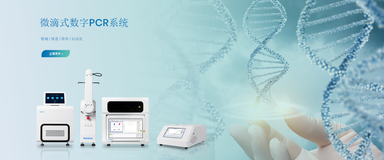Sepsis Overview
Clinical application- Bloodstream Infections: Huge Market, Existing Technologies Fail to Meet Clinical Needs

The number of morbidities is high:
• Global: 49 illion people/year (WHO,2020)
• China: about 6.11 million people/year
High mortality rate:
• Global deaths: 11 million/year (WHO, 2020)
• Morbidity and mortality rate of more than 30%, plus cognitive dysfunction of 16.7%
Rapid onset:
• 58% increase in risk of death for each 6-hour delay in treatment
• Delaying treatment by two days increases the risk of death by 38.8 times
The gold standard - blood cultures:
• Low sensitivity:
—Broad-spectrum antibiotics are misused to inhibit colony growth, and blood cultures are often not culturable
—Longer incubation, more sets of blood drawn, increased detection rate, empirical, susceptible to environmental influences
• Long testing time, 3-5 days, not able to give an effective diagnosis in time
• High sample volume requirements, 40-60 ml of blood drawn, poor clinical accessibility
Technology
Detection
Sensitivity
Specificity
Cost
Overall assessment
blood culture
3-5d
+
+
blood culture +
Gold standard, but outdated technology unable
to meet clinical needs
mNGS/tNGs
24-72h
+++
++
NGS ++++
Heavily influenced by host gene background, poor sensitivity and specificity; poor timeliness; can not detect antibiotic resistant genes
qPCR(filmarray)
17.2h
++
+++
Qpcr ++
Blood culture requirde before testing Cannot be absolutely quantified
digital PCR
4-5h
+++
+++
dPCR ++
absolute quantification High sensitivity + fast detection Direct whole blood detection, no blood culture required

Bloodstream Infection:
Digital PCR's core advantage, Fast and Accurate Meeting Clinical Needs
Bloodstream Infection:
Digital PCR's core advantage,
Fast and Accurate Meeting Clinical Needs
Blood Culture is clinical golden standard but with delayed turn around time


Analytical performance characteristics
Gram Positive Bacteria
Enterococcus faecium
Streptococcus pneumoniae
Straphylococcus haemolyticu
Straphylococcus capitis
Straphylococcus hominis
Gram Negative Bacteria
Bacteroides fragilis
Pseudomonas aeruginosa
Stenotrophomonas maltophilia
Escherichia coli
Klebsiella pneumoniae
Salmonella enterica
Pneumocystis jirovecii
Fungi
Aspergillus fumigatus
Candiada albicans
Candida glabrata
Candida Krusei
Antimicrobial Resistance Genes
NDM
mcr-1
vanA/B
mecA/C and MREJ(MRSA)
OXA-48-like
VIM



All-in-one Digital PCR System RS32 SYSTEM

DropX 2044 digital PCR system

Digital PCR Cartridge

Heat Transfer Film

Sepsis Pathogenic Microorganism Detection Kit (Digital PCR)

Droplet Generation Oil



Case Studies


